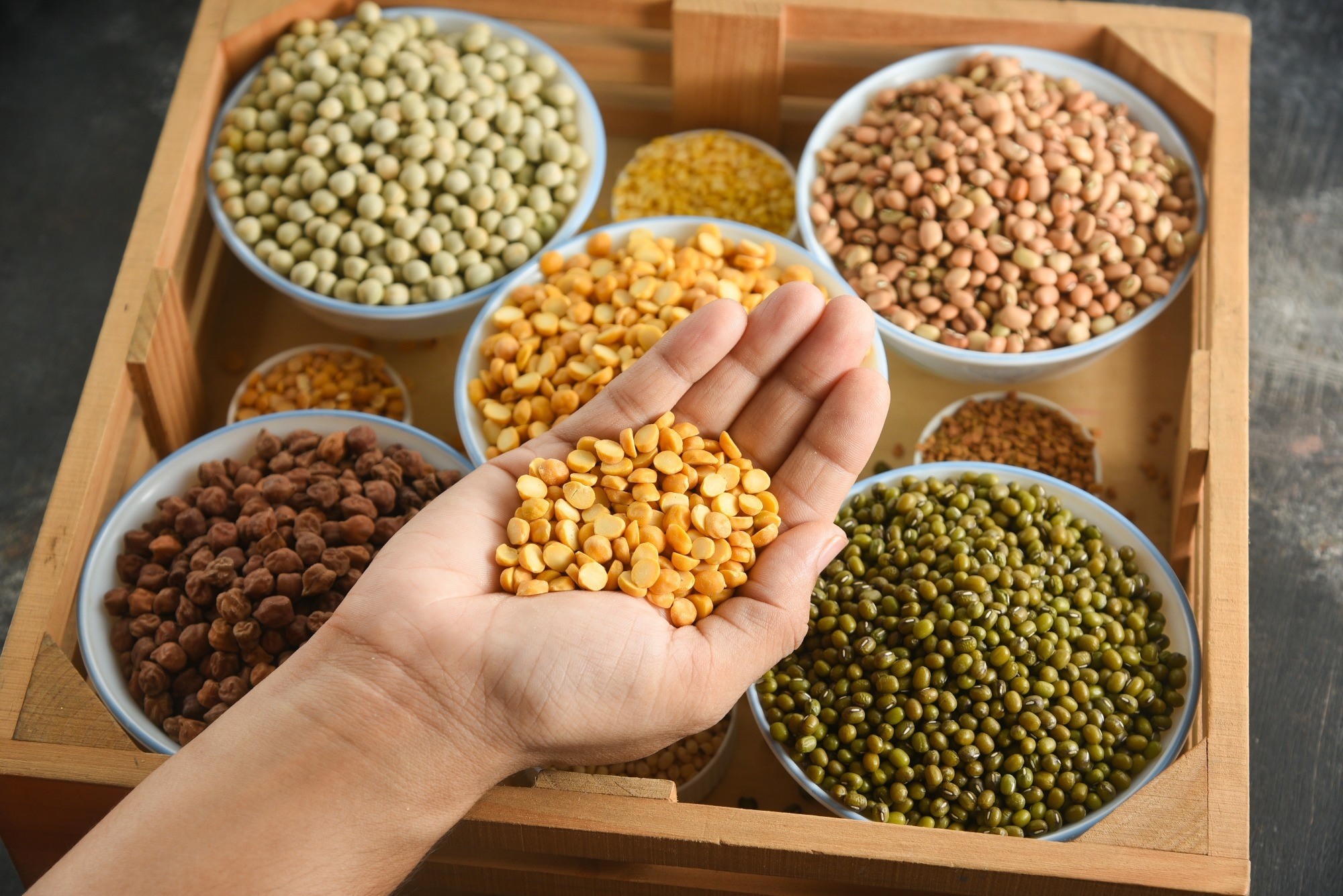Japanese researchers reveal that diets rich in pulses and vegetables may help reduce stress levels—not just through nutrients, but by supporting the growth of specific gut bacteria.
 Research: The intake of pulses and vegetables is associated with an increase in the Lachnospira abundance and a decrease in stress: Analysis of the ‘Sukoyaka Health Survey’. Image Credit: Santhosh Varghese / Shutterstock
Research: The intake of pulses and vegetables is associated with an increase in the Lachnospira abundance and a decrease in stress: Analysis of the ‘Sukoyaka Health Survey’. Image Credit: Santhosh Varghese / Shutterstock
In a recent study published in the journal Clinical Nutrition ESPEN, researchers investigated the relationship between diet quality, stress, and gut microbiota. Humans are exposed to stressors daily, and prolonged exposure can have a negative impact on both the body and mind. Besides, it can result in migraines, neurosis, stomach ulcers, anxiety, and depression. The gut microbiota has been linked to stress, with studies suggesting that stress can alter the composition of the gut microbiota and that the gut microbiota, in turn, can influence stress responses.
Furthermore, epidemiological studies suggest that diet plays a crucial role in stress, with various foods and nutrients affecting stress levels. Nutrient profiling is the science of ranking or classifying foods based on their nutritional value to promote health and prevent disease. Nutrient profile models (NPMs) serve as comprehensive assessment indices that consider multiple nutrients simultaneously, rather than focusing on a single one.
Various NPMs have been developed to evaluate diet quality. One such NPM is the Nutrient-Rich Food Index 9.3 (NRF9.3), which can be applied to individual foods, menus, meals, and entire diets. However, there are limited studies on the relationship between health indicators and NRF9.3. Moreover, prior to this research, no study has investigated the relationship between NRF2.3 and the gut microbiota or stress.
About the study
In the present study, researchers investigated the relationships between diet quality, stress, and gut microbiota. They used data from the Sukoyaka Health Survey of Japanese adults aged 20–80, conducted twice a year (in winter and summer). This study analyzed data from the summers of 2019 and 2020. The Brief Job Stress Questionnaire (BJSQ) assessed mental and physical stress response scores, and the Food Frequency Questionnaire (FFQ) assessed food and nutrient intake.
The gut microbiota composition was analyzed using shotgun metagenomics. NRF9.3 was used to determine the diet quality. NRF9.3 scores were computed using FFQ data, with higher scores indicating a diet rich in beneficial nutrients (e.g., minerals, dietary fiber, vitamins) and low in nutrients to be moderately consumed (e.g., saturated fat, sodium, added sugars).
Hierarchical clustering was used to stratify subjects based on their stress levels. The gut microbiota composition and diet quality were compared between the clusters. An exploratory probabilistic network modeling analysis was conducted to investigate the statistical associations and possible mediation pathways between gut microbiota, dietary factors, and stress response scores, while adjusting for age, body mass index, and blood pressure. The authors noted that other potential confounders, such as physical activity, socioeconomic status, and probiotic use, could not be adjusted for in this analysis.
Importantly, the study sample consisted of a majority of female participants, which may affect the generalizability of the results.
Findings
The study included 1,058 healthy adults aged 48.9, on average. The majority of participants were female, which may affect the generalizability of the results. Hierarchical clustering analysis identified three (optimal) clusters (1–3). Clusters 2 and 3 had significantly higher and lower stress response scores, respectively, representing high-stress and low-stress groups. Cluster 1 represented the medium-stress group. Further, cluster 2 had substantially lower NRF9.3 scores than other clusters, indicating poor diet quality.
Moreover, cluster 2 had significantly reduced intake of vegetables and pulses compared to other clusters. The researchers further investigated specific food items in the FFQ and estimated individual food intake within nine vegetable- and four pulse-based foods. They found that cluster 2 had significantly lower intake of green peppers, tomatoes, and natto than the other clusters.
Cluster 2 also showed significantly reduced relative abundances of Ruminococcus and Lachnospira compared to Cluster 3, and Collinsella compared to Cluster 1. The researchers found a statistically supported mediation pathway: a relationship between NRF9.3 and Lachnospira, as well as between Lachnospira and stress response scores, but not a direct effect of NRF9.3 on stress scores. There was also a significant relationship between the amounts of green peppers, natto, and tomatoes consumed and NRF9.3.
Notably, while natto is a traditional Japanese food, the authors contextualize their findings by stating that similar bioactive components can be found in globally consumed fermented foods such as tempeh or kimchi.
Conclusions
Taken together, a higher NRF9.3 score was associated with increased relative abundance of Lachnospira and reduced physical and mental stress response scores. Increased Lachnospira abundance was also associated with lower stress response. The relationship between diet quality and stress appears to be mediated via Lachnospira, rather than being a direct effect of diet on stress. Furthermore, increased consumption of green peppers, natto, and tomatoes was associated with higher NRF9.3 scores and Lachnospira abundance, which, in turn, were associated with reduced stress response scores.
The study’s limitations include the self-reported nature of eating habits and dietary intake, possible selection bias related to a health-conscious, predominantly female Japanese sample, poor generalizability to other populations, limited adjustments for confounders, and the use of a subjective assessment of stress (BJSQ) rather than objective biomarkers. The cross-sectional design also prevents any inference of causality between diet, gut microbiota, and stress. Additional longitudinal studies are needed to determine whether specific dietary components affect the stress response by modulating gut microbiota.
The authors note that while natto, tomatoes, and green peppers were identified in this Japanese cohort, similar bioactive components are present in other globally consumed foods, and broader dietary patterns rich in polyphenols, dietary fiber, and fermented foods may also be relevant to stress regulation.